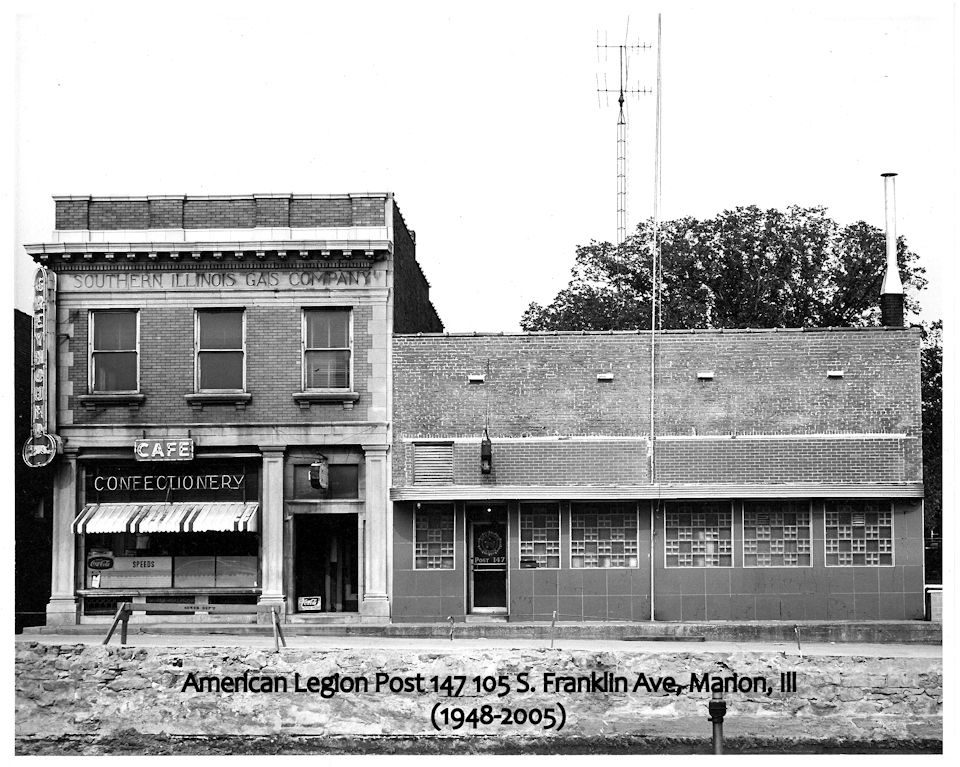William Cook was a Civil War era merchant in Marion and served as a City Trustee after the Civil War yet only a small amount of information could be found about him. He appears to have been born in Southern Illinois in 1825. In the 1850 census, William was found living with the William R. Gregg family near Equality, Illinois in Gallatin County. He was listed as being 26 years old, a farmer, and had real estate estimated at $600, which was doing quite well for that time.
Continue readingLouis Gudder was born in Kovno, Lithuania, later a part of Russia, Dec 17, 1877. He was a junk dealer in Marion from the early 1900s through the depression years until his death in 1956. He was also the owner of the block on the square where the Goodall Hotel burned in 1941. He immigrated to America in 1902 or 1903. Hard work and judicious buying and selling of scrap metal made him a very prosperous man.
Continue readingCaleb Tarleton Holland was born July 28, 1845 in White Day, Virginia (which became West Virginia after the 1860’s) to Jacob Holland (1816-1875) and Emily Tarleton (1819-1857). Jake was born in Morgantown, West Virginia and died in Harrisburg, Illinois.
Jacob and Emily were married in Monongalia County, West Virginia Dec. 6, 1837. They had six children: Mollie, Cordelia (1840), Brice (1842-1922), Caleb T. (1845), Romulus D. “Tobe” (1847), Evaline (1849), all born in West Virginia. In 1850 The Holland family was living in Monongalia County, West Virginia. Caleb was 4 years old living with Jacob and Emily, Cordelia, 10, Brice, 7, Caleb 4, Romulus, 2 and Evaline, less than a year. They had another child in 1853, Europa. Jacob was a farmer with real estate valued at $2,500. The whole family was born in West Virginia. Emily died in 1857 and Jake married Sophronia Bogus (born 1825) in Virginia. They had five children together: Lucien (1859), Bruce (1861), Idella (1863), Guy (1865) and Zera (1868). Continue reading
The first American Legion Post in Williamson County had its beginnings shortly after the St. Louis Caucus in May of 1919. The Marion Daily Republican newspaper announced the St. Louis Caucus that month and reported that “plans soon would be made for a local chapter.” John Steele had already made contact with Oldham Paisley of the Marion Daily Republican newspaper. John Steele (later a National Commander) was determined that Chicago wouldn’t control the American Legion in Southern Illinois., therefore he made contacts throughout Southern Illinois to insure that many posts were formed in Southern Illinois. He contacted all recently discharged veterans that were newspaper editors, politicians and business men to assist in forming posts in as many communities as soon as possible. Others did the same in the center of the state. Therefore, any post in Southern Illinois that has a number of 400 and below is known as a “John Steele Post.” Continue reading
In the process of creating an extensive article about the Robert L. Butler administration (1963-2018) a few years back I searched through the Southern Illinoisan newspaper archives back to the late 1950’s and took note of significant events that occurred in Marion forward to about 2016. Events include city government decisions, actions, budgets, business openings and closings, and anything thought noteworthy between 1954 and 2016. Continue reading


